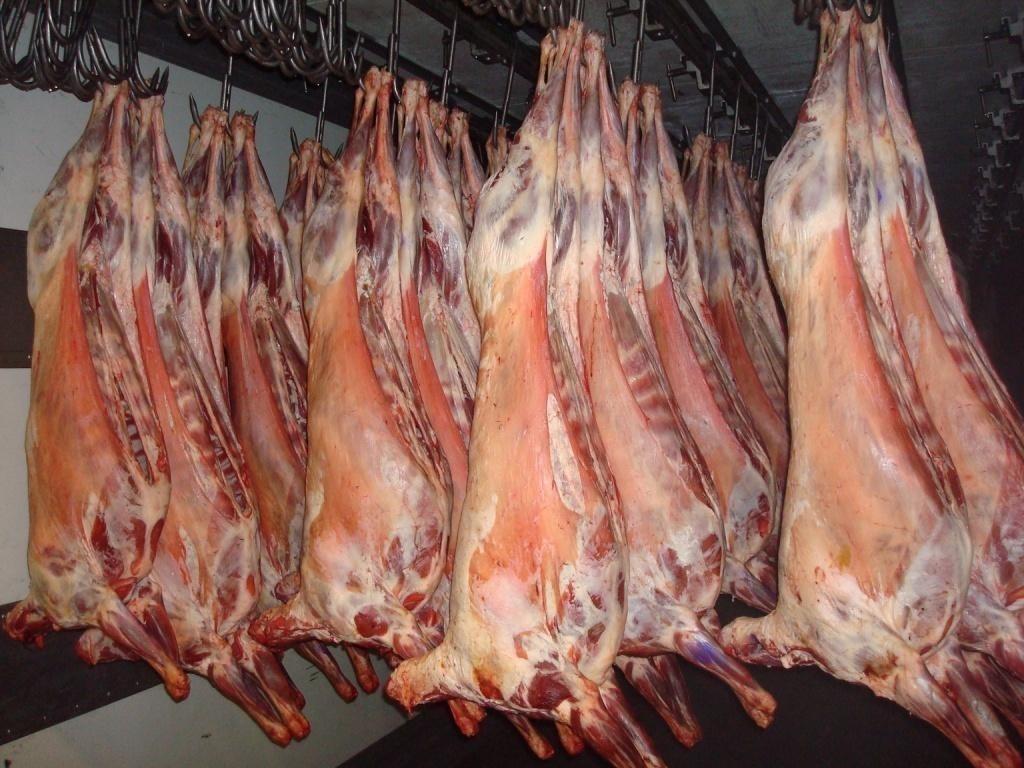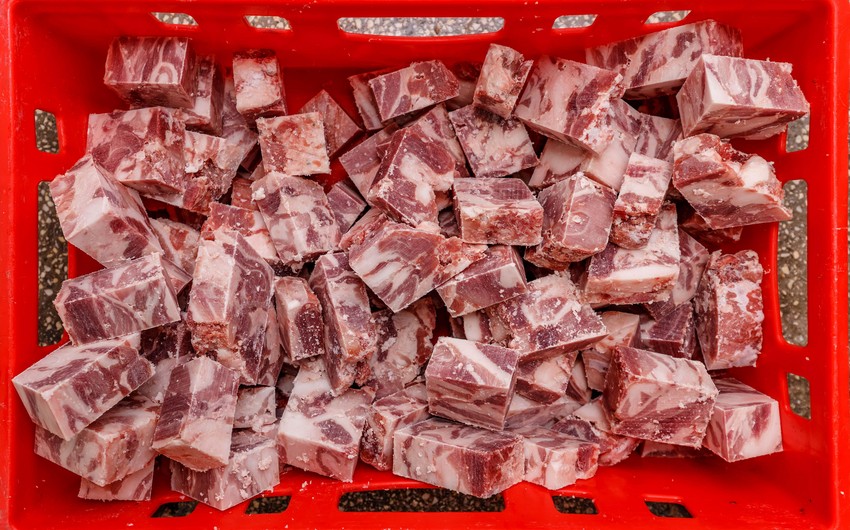Azerbaijan mainly imports frozen beef from Ukraine. 3,546 tons or 79.7% of 4,450 tons of frozen meat last year were imported from Ukraine. The rest - 14% - came from India and up to 5% from Brazil.
How does the situation caused by the Russian-Ukrainian war affect the frozen beef market in Azerbaijan?
Saadat Hajiyeva, an official of the Ministry of Agriculture, told Report that more than 80% of beef supplied into the country is imported in frozen form: "In 2021, the import of frozen beef amounted to 4,450 tons, which is about twice less than in 2020. Frozen meat is mainly used for the needs of the country's tourism sector, restaurants, and cafes. In general, the country's self-sufficiency in meat products is over 85%.
"We are mainly dependent on imports of poultry meat. The self-sufficiency rate for poultry is 79%. For beef, this figure is 87-88%."
Ali Safarov, who sells frozen meat at the local market, said he brought frozen meat from Ukraine before the war. Then there were problems with bringing it from there: "Currently, we do not trade in frozen meat. We also brought frozen chicken legs from Ukraine. Due to the current situation, there is an inevitable shortage in the market and the price rises. We are currently selling fresh meat. After the war, we plan to bring frozen meat from Ukraine again."

Representative of the Veyseloglu Group of Companies Parviz Huseynov also spoke about the impact of the Russian-Ukrainian conflict on frozen meat products in our country. Noting that the demand for poultry meat is met by imports from Ukraine, Huseynov said that as a result of the economic difficulties created by the Russian-Ukrainian conflict in the region, demand will exceed supply, which is expected to affect prices:
"At the same time, as Ukraine and Russia provide the basis for animal feed, it is inevitable that the price of feed and, as a result, poultry will increase. Problems in logistics are also one of the factors influencing the price increase. At the same time, due to certain difficulties in the payment process, the purchase of products will not be carried out as before. Because most factories require prepayments, and, of course, in the current situation, there will be no risk of prepayment to Russia and Ukraine.
As an alternative market, the representative of the company mentioned Georgia, Turkey and Iran, adding that appropriate measures are being taken at the state level to import these products from these countries:
"In the current situation, our company has taken the necessary steps to supply from Belarus and Georgia. In this regard, we continue to work, and as a company, we are always looking for a sufficient supply of products for our customers.


 https://static.report.az/photo/53a24ecd-80ab-3e8f-9926-dde02721738f.jpg
https://static.report.az/photo/53a24ecd-80ab-3e8f-9926-dde02721738f.jpg

